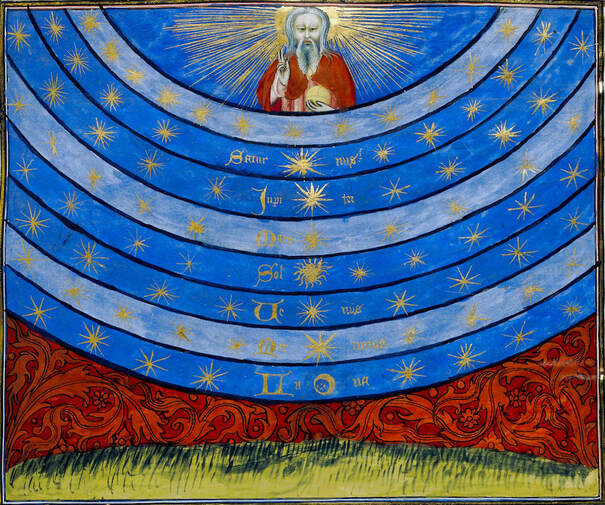Creed of the Gnostic ChurchThe Gnostic Creed expresses the core beliefs of our Church:
I believe that all proceeds from a Universal Principle, ineffable without limit and without form, One in its essence and triple in its manifestation: Father, Son and Holy Spirit. I believe that this Principle is the supreme Propator, and that Thought, indissolubly linked to himself engendered the hierarchy of the Holy Aeons, which are his attributes, by which He manifests himself, and which emanated from Him are consubstantial with him. I believe that the Demiurge is the principle of division and of egotism, and that he produced all the relativities, and therefore is the creator of all forms and of all individual existences, but that the superior principle which is in him and with which he is linked to the Universal Spirit, proceeds directly from the Propator. I believe that the Aeon Christ, united to the Holy Spirit, manifests himself to us through “Saviors.” I believe that the goal of the mission of these Saviors is to prepare us for the advent of the Paraclete, which is the Holy Spirit, and which manifests itself to us as the Virgin of the Light. I believe that all beings will finally enter into the bosom of the Pleroma, where Harmony, Justice, and Grace reign in all the Aeons. Adapted from Gnostic Creed written by Marie Chauvel de Chauvignie (Sophia Escarlamonde Bishop of Warsaw), 1913. Gnosticism
By John Cole (Tau Iohannes Harmonius), 1999. The Birth of Christian Gnosticism in the Mixing of East and West Adapted from The Gnostic Religion by Hans Jonas Sources of Gnosticism Adapted from The Gnostic Religion by Hans Jonas Gnosis and Gnosticism Extracts from The Gnostics by Serge Hutin |
Gnostic TenetsWhile there was pronounced intellectual individualism among Gnostics, they generally held certain ideas in common: Theology In gnostic thought God is ineffable and unknowable by natural concepts. Knowledge of God therefore requires revelation and illumination. Cosmology In gnostic cosmology the cosmos is ordered in a hierarchy of layers, orders, or spheres, expressing the degree to which man is removed from God. The spheres are the seats of the Archons, whose rule is called heimarmene, or universal Fate. Each Archon guards the passage of souls that seek to ascend after death to escape from the world and return to God. The Archons are also the creators of the world, except where this role is reserved for their leader, the Demiurge (Demiurgos) or world-artificer. Anthropology Being part of the physical cosmos, man is animated with the nature of the cosmic spheres, which together make up his astral soul or “psyche”. Enclosed in the soul is the spirit, or ‘pneuma” (called also the “spark”), a portion of the divine substance which has fallen into the world; and the Archons created man for the purpose of keeping it there. The divine spark is as alien to this world as the transcendent God is. The pneuma is enclosed and immersed in the body and soul and is unconscious of itself, as if asleep. Its awakening and liberation is accomplished through “knowledge”. Through his body and his soul man is a part of the world and subjected to the heimarmene. Eschatology The goal of gnostic striving is the release of the “inner man” from the bonds of the world and his return to his native realm of light. The necessary condition for this is that he knows about the transmundane God, about his divine origin and his present situation, and about the nature of the world. A famous Valentinian formula says: "What liberates is the knowledge of who we were, what we became; where we were, whereinto we have been thrown; whereto we speed, wherefrom we are redeemed; what birth is, and what rebirth." Source: Jonas, H. (1963). The gnostic religion: The message of the alien God and the beginnings of Christianity. Boston: Beacon Press. |
